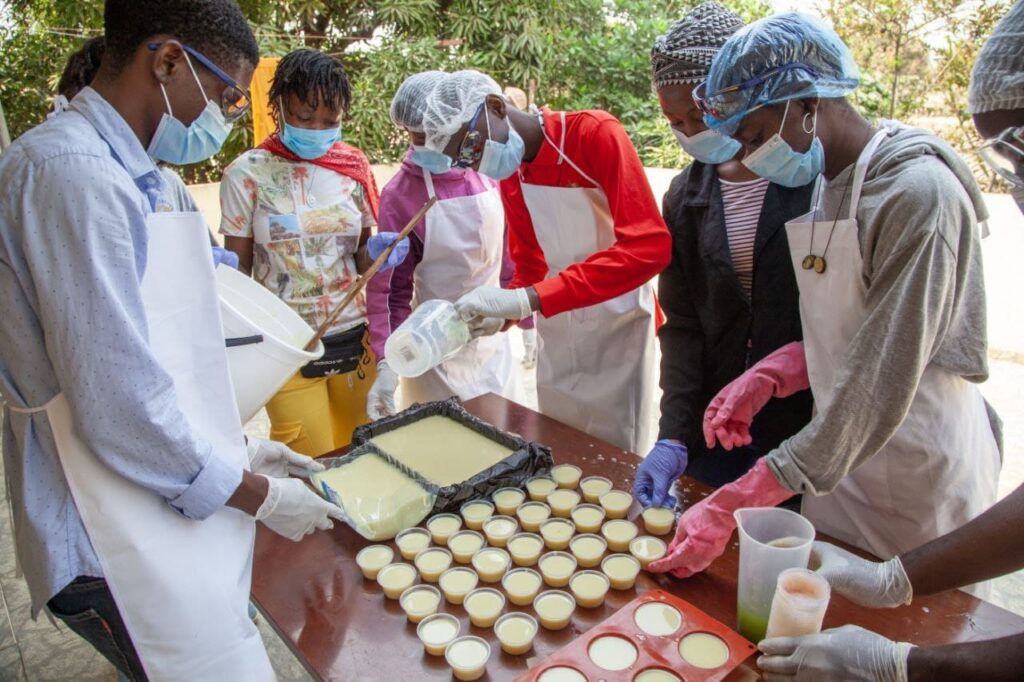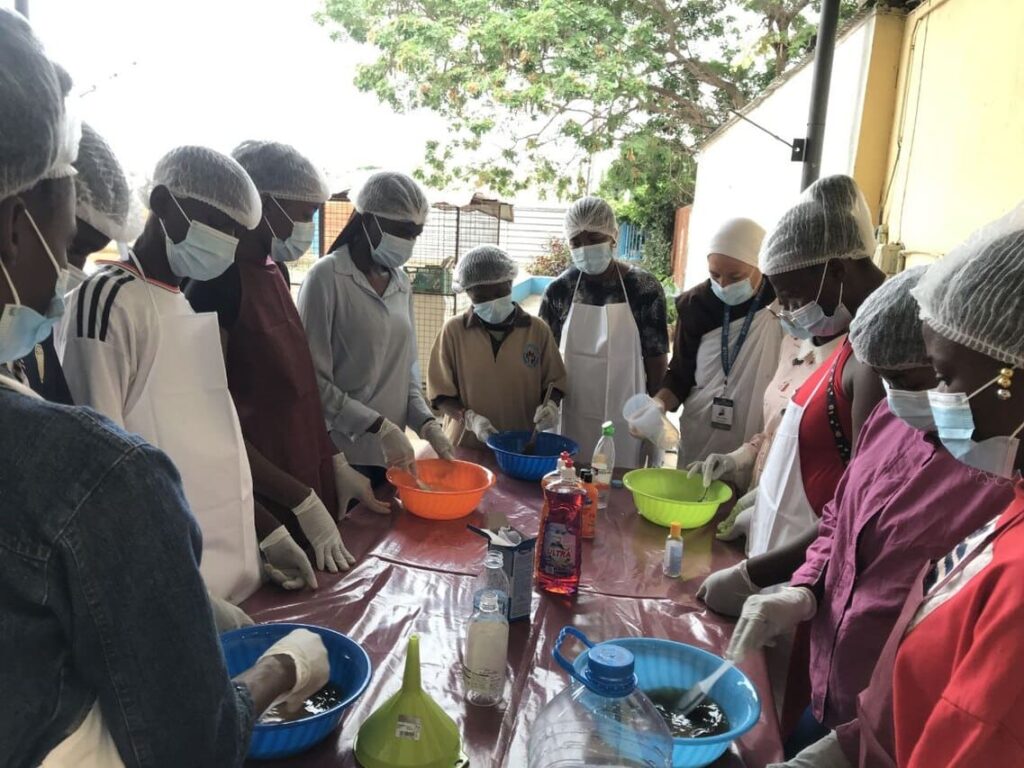Since April 2023, the Fraternity – International Humanitarian Missions (FIHM) team has held a series of workshops on Hygiene and Cleaning with children and young people from Santa Isabel Children’s House (CSI) in Luanda, Angola, which have ranged from the promotion of personal hygiene and health, to the manufacture of cleaning products, such as liquid soap for clothes and general cleaning, powdered and bar soap, disinfectant and eco-enzyme.
“In the first moment, we built, together with the children and young people, notions of management and organization of the different spaces of the Children’s House, such as stocks of food, medicines, personal hygiene and cleaning products, school supplies and toys,” explains the humanitarian actor Mother Teresa.

“The strategy we used was to raise awareness among children and young people about the fact that hygiene and cleanliness of environments can bring benefits to the physical and mental health of all those who participate in the daily life of the Children’s House,” complements Madre Teresa.
These activities were carried out in a joint effort system, with collaborative group work, and had the participation of both Children’s House employees and educators, as well as children and young people.
“During the actions, a fun and educational environment was also built, bringing the understanding that, in daily activities, there is a world full of new discoveries and learning. And so some values are strengthened, such as the sense of care for what we receive, the correct place for everything and care with garbage, in addition to the importance of teamwork,” evaluates the humanitarian actor Anderson Santiago.

Income generation and sustainability through soap production
Continuing the training on Hygiene and Cleaning Products, a group of young people from Santa Isabel Children’s House participated in a soap making workshop, from the reuse of cooking oil, in partnership with the Pharmacy Course at the Jean Piaget University in Luanda.
During the training, they learned about the composition of soap and the correct proportions of the ingredients in the formula, created by the University itself. They studied the concept of saponization, the use of PPE (Personal Protective Equipment) and the importance of prior organization of the material to be used.
The coordinator of the Pharmaceutical Sciences Course and mentor of this project, Professor Wilson Anilba, together with Professor Judith Bellise, explains that soap produced correctly can be used for washing clothes and even for personal hygiene.
“In addition to benefiting the environment, avoiding the incorrect disposal of oil, it also prevents the waste of material resources and the proliferation of pathologies,” analyzes the professor.


Environmental impacts of incorrect disposal of cooking oil
Cooking oil is highly polluting and its incorrect disposal is capable of generating a series of environmental problems, such as sealing and contaminating the soil, contributing to the increase of floods, clogging of sewage networks, the pollution of groundwater and the compromise of the base of the aquatic food chain.
According to data from the Brazilian Ministry of the Environment, 1 liter of oil can contaminate up to 25,000 liters of water, as its substances do not dissolve in water and, when poured into waterways, cause oxygen starvation and the death of fish and other species.
Joint actions for sustainability, quality of life and reception
Mother Teresa emphasizes the importance of the workshop, because, for her: “expanding sustainability is also ensuring the improvement of the quality of life, which could become a way of life for young people, possible future entrepreneurs.”
According to Mother Teresa, “everyone was very interested, taking note of every detail explained by the teachers and ended the class with the expectation of being able to reproduce the formula at Santa Isabel Children’s House.”


“It was a joy for us to be able to help integrate the children and young people of the Children’s House into the social environment, in partnership with the Fraternity – Humanitarian Missions (FIHM). We want them to find another kind of warmth at the Jean Piaget University and make them smile from the point of view of science, which is our mission,” concludes Professor Wilson.
After the university experience, a group of young residents at CSI continues to practice and produce bar soap on a weekly basis, with the support and supervision of part of the Fraternity – Humanitarian Missions (FIHM) team, based on the formula shared by Professor Judith Bellise, with only three ingredients, also making new experiments with medicinal herbs and teas.







